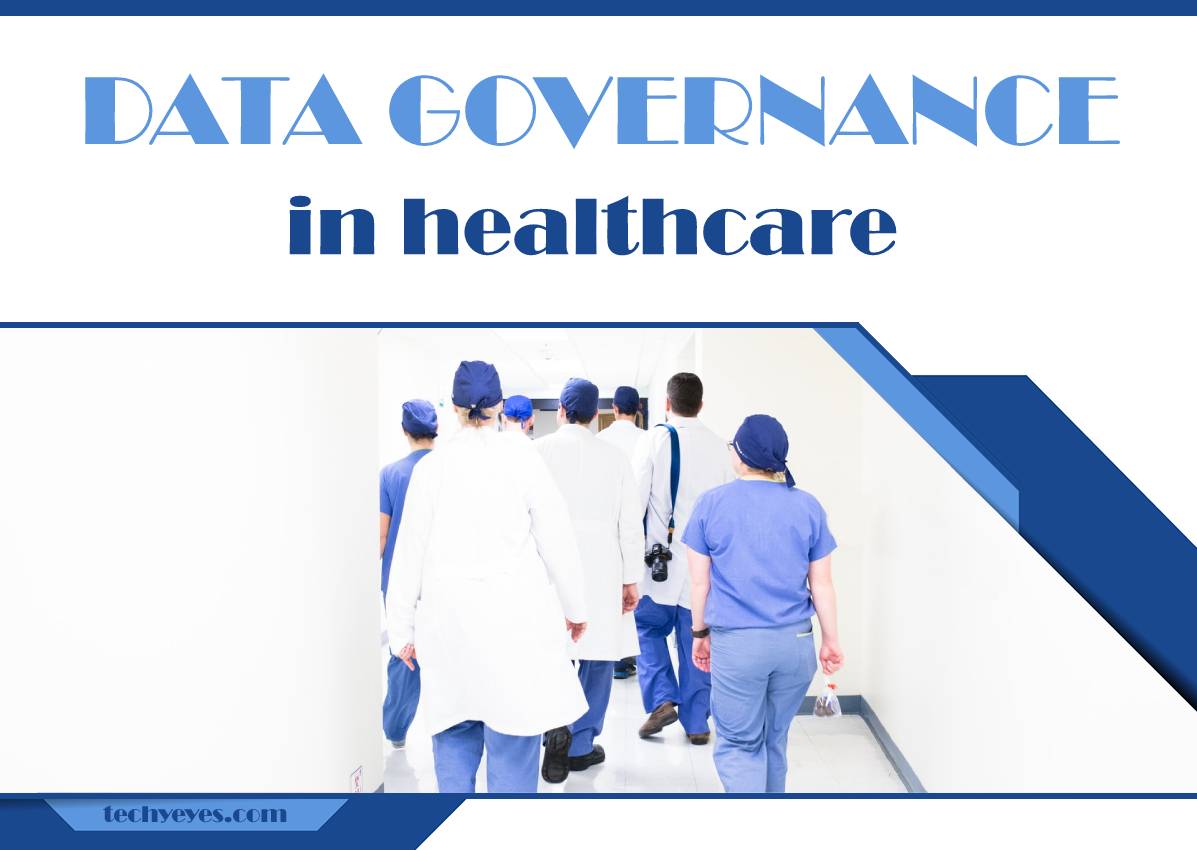When it comes to healthcare, data governance is critical to making sure patient privacy is protected, and it’s an essential part of any organization’s digital transformation journey.
Why it’s Critical That You Have Data Governance In Healthcare

Data governance is an important part of any healthcare organization. As the amount of information stored in electronic format has increased, data governance has become a necessity rather than a choice.
While there is no “one size fits all” approach to data governance, we can still provide a few tips on how to implement one. Data governance is not a set-it-and-forget-it endeavor.
It’s a process that should be ongoing and constantly refined as your healthcare organization grows and changes. We will explain why it is critical that healthcare organizations have a data governance policy and what that entails.
Data Governance in Healthcare: A New Reality
When we talk about data governance, the first thing that comes to mind is the idea of data protection and access rights. But this is only one part of the issue. We must also take into consideration the new reality that we are in today, where the number of data sources and types of data is growing rapidly.
These data sources include, among others, patient-generated data, clinical data, administrative data, billing data, insurance claims data, claims adjudication data, and patient portals.
For healthcare organizations to be successful, they must develop a data governance strategy. As part of this strategy, you must have a defined set of policies and procedures to protect your patient data.
You also need to identify the people who will be responsible for enforcing the rules and ensuring that the data is used only for its intended purpose. This strategy will help ensure compliance and reduce the likelihood that your organization is hit with a lawsuit.
The Role of Data Governance in Healthcare

There’s no doubt that healthcare organizations are going through a period of change, but many leaders are still struggling to define their roles in the new healthcare system.
Organizations must be able to integrate data into decision-making to improve clinical and business outcomes and to meet the challenges posed by the current healthcare environment. In order to do this, you need to establish a data governance strategy with Delphix that will support data-driven initiatives.
To really get to the heart of the matter, you need to start from the beginning and think about how to define the right data governance strategy for your organization. This means looking at what kind of data exists in the organization, where it’s stored, what’s the risk associated with it, what type of security should be applied to it, and who is responsible for ensuring its security.
Why It’s Critical That You Have Data Governance In Healthcare
Healthcare is one industry where there’s an abundance of data and, at the same time, the need for a secure way to store and share it. This data-sharing dilemma has been compounded by a rise in patients who demand transparency and increased control over their own data, and a push from the Centers for Medicare & Medicaid Services (CMS) to promote the use of electronic health records (EHRs).
Data governance in healthcare is becoming increasingly important in order to ensure the quality and integrity of healthcare data. It is also crucial to support the data-driven insights of future healthcare innovations.
The recent changes in healthcare regulations such as the Affordable Care Act (ACA) require that a healthcare organization demonstrate that it is capable of protecting patient health data and keeping it secure, reliable, and compliant with all federal and state regulations.
The Seven Things You Need to Know about Data Governance in Healthcare

There are a few things you need to know about data governance in healthcare that will help you understand what is going on with data in your organization. The first is the difference between “data governance” and “data management.” “Data governance” refers to the process of protecting data, managing access to it, and controlling its use and reuse. It can include but is not limited to, making sure there are adequate data controls in place to protect it.
The second thing you need to know about data governance in healthcare is the difference between “data governance” and “data management.” “Data management” refers to the process of collecting, storing, retrieving, managing, analyzing, and using data. It can include but is not limited to, making sure that you have the right information technology infrastructure to handle it. It can include but is not limited to, making sure you have the right systems, software, and people to use it.
The third thing you need to know about data governance in healthcare is that it is different than a data policy or standard. A data policy is a statement of data governance principles, whereas a data standard is a detailed data governance strategy.
The fourth thing you need to know about data governance in healthcare is that data governance is distinct from IT governance and IT governance. They are all important, but they are different. Data governance focuses on the control of the data itself; IT governance focuses on the control of the technology systems used to collect, store, retrieve, analyze, manage, secure, and use data.
Data governance also focuses on the control of the people who will be using the data and the policies and processes that will help to make sure that data is used appropriately. IT governance, however, focuses on the control of the people who use the technology systems and the processes and policies that will help to ensure that the technology systems are used appropriately.
The fifth thing you need to know about data governance in healthcare is that it includes, but is not limited to, the following:
- Policy
- Standard
- Procedures
- Training
- People
- Tools
The sixth thing you need to know about data governance in healthcare is that it is important. It is important to make sure that data is protected, that access to it is controlled, that it is used in the right way, and that it is stored and reused in a secure manner. Data governance is also important to ensure that your organization has the appropriate data technology infrastructure to handle data properly.
The seventh thing you need to know about data governance in healthcare is that it is different than data security. Data security focuses on the protection of data from unauthorized access and improper use. Data governance focuses on the protection of the data itself.
How to Implement Data Governance in Healthcare

The most important step of a data governance strategy is planning, according to the FDA. It needs to start with an accurate understanding of the organization’s goals and then identify the people and processes that are in place to accomplish those goals. That way, the organization can identify what data needs to be collected, how it needs to be collected, and who should access it.
When hospitals collect and share patient data, it’s called “Data Governance.” The goal is to make sure data is accurate and up-to-date before it is shared. At the start of each day, doctors write down any patient’s allergies, medications, medical history, and test results, before they see a patient.
They then hand the patient’s chart to the nurse who reads it and updates the patient record, if necessary. The nurse also writes down the medication that the doctor prescribes. When the nurse hands the chart back to the doctor, he or she updates the chart with the new information.
- Data is power and can be used to improve the care we provide to our patients.
- Healthcare organizations that are able to collect, store, and use data in new and powerful ways to drive clinical and financial improvements often outperform their peers.
- Healthcare organizations that do not have well-defined data governance processes may find themselves unable to take advantage of data.
Conclusion
In conclusion, it’s critical that you have data governance in healthcare. When I’m asked by people what data governance means, they usually respond with some version of, “it’s about protecting your data.” But the truth is, data governance is more than a fancy, trendy buzzword that you need to add to your resume.
Data governance is about making sure that the data that you have available to you is accurate and complete. In the healthcare space, this is a much larger problem than most people realize. Not only do we not know where all the data is located, but we also don’t know how old and inaccurate that data might be.
That can mean the difference between a patient who is prescribed the right medication, or the wrong medication, which could be life or death for someone in serious medical distress.
How do you know if your hospital is doing data governance? We’ll show you.

